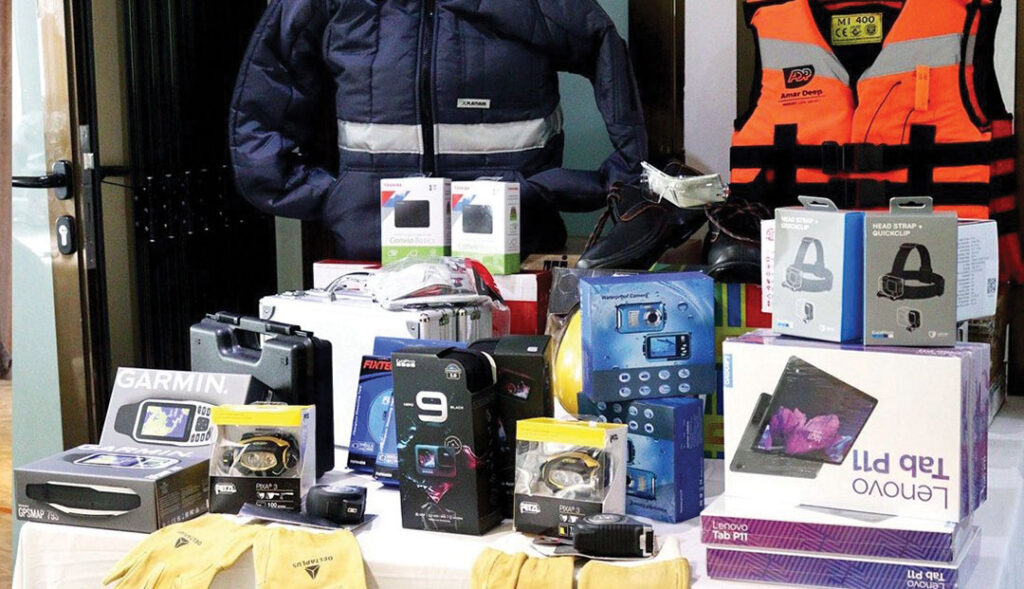ADF STAFF
Kenya was among seven African nations to receive an array of equipment from the Indian Ocean Commission (IOC) to help fishing inspectors battle illegal, unreported and unregulated (IUU) fishing.
Delivered in December 2022, the equipment includes floater suits, hand-held GPS devices, onboard and waterproof cameras, and laptop computers and tablets. Kenya’s marine resources are threatened due to an influx of foreign industrial trawlers.
“The materials and equipment donated will help facilitate their exercise of reporting, to improve their security and to promote transparency in the performance of their mission,” Vêlayoudom Marimoutou, secretary-general of the Indian Ocean Commission, said in an IOC news release.
Comoros, Madagascar, Mauritius, Mozambique, Seychelles and Tanzania also received IOC donations. The region is along the Mozambique Channel, a major route for the shipment of heroin from Afghanistan. Wildlife trafficking also has increased due to widespread poverty and increased demand for exotic animal products abroad.
The commission’s involvement in the region’s maritime security began in the early 1980s as cocaine and heroin became major revenue sources for drug traffickers.
“We all have a common goal, to ensure that our oceans are used and managed in a sustainable and responsible manner, and that the people who depend on them can continue to earn a living and contribute to the well-being of their communities,” Milko Van Gool, head of cooperation of the European Union Delegation to Mauritius and Seychelles, said in the IOC release.
Kenya recently has taken several steps to clamp down on illegal fishing and boost its blue economy. In mid-March 2022, the country ratified the Cape Town Agreement (CTA) and the International Convention on Standards of Training, Certification and Watchkeeping for Fishing Vessel Personnel.
Adopted by the International Maritime Organization in 2012, the CTA outlines fishing vessel standards and regulations to protect crews and fisheries observers, according to the Pew Charitable Trusts.
Kenya also is building a DNA database of its marine species to conserve its sea resources amid widespread illegal fishing. The exercise involves harvesting species and cataloging them to help the government prosecute illegal fishing cases. Since the program started in 2022, Kenya has produced bar codes for about 115 species.
The project, which is expected to take several years, began after Francis O. Owino, newly appointed principal secretary of the State Department for Fisheries, Aquaculture and the Blue Economy, urged institute scientists to enhance research as the country looked to stimulate its blue economy.

